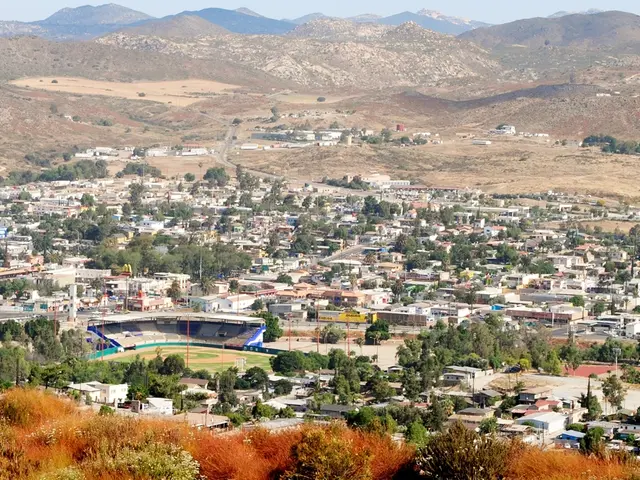Federal judge denies USDA's data collection plan for SNAP applicants in 21 states.
In a recent ruling, U.S. District Judge Maxine Chesney has temporarily barred the U.S. Department of Agriculture (USDA) from collecting personal information about residents enrolled in the Supplemental Nutrition Assistance Program (SNAP) in 21 states and Washington, D.C.
The decision comes as part of a lawsuit filed by several states, including Arkansas, Louisiana, and New Hampshire, challenging the USDA's attempt to collect SNAP data. The states argue that the personal data can only be used for administering the food assistance program and fear that it could be used to aid mass deportation efforts.
The USDA's collection of SNAP data is part of the Trump administration's efforts to collect data on millions of U.S. residents through various federal agencies. The executive order signed by President Donald Trump on March 20 directs agencies to ensure "unfettered access to comprehensive data from all state programs" as part of the administration's effort to stop "waste, fraud and abuse".
Under the SNAP program, the federal government pays 100% of the food benefits, while the states determine who is eligible for the benefits and then issue them to enrollees. Some states have already turned over the SNAP data to the USDA, but Judge Chesney's ruling temporarily halts this practice.
Judge Chesney found that the USDA had announced its intention to share the SNAP data with other entities and use it for purposes not allowed by the SNAP Act. She also stated that the personal data generally cannot be shared with other entities, according to the judge's ruling.
This is at least the second lawsuit filed over the USDA's attempt to collect SNAP information. Privacy and hunger relief groups, along with a handful of people receiving food assistance benefits, filed a similar lawsuit in Washington, D.C., in May. In that case, the federal judge declined to issue a preliminary injunction to stop the data collection.
A hearing will be held next month to determine if a longer-term prohibition is necessary. The USDA warned states in July that if they failed to turn over the information about people enrolled in the federal food assistance program, SNAP funding would be cut off. This warning has been put on hold due to Judge Chesney's ruling.
The information collected by the Trump administration has been shared with the Department of Homeland Security to support deportation efforts. However, the judge's ruling temporarily prevents this from happening for the states involved in the lawsuit.
The Supplemental Nutrition Assistance Program, or SNAP, is a social safety net that serves more than 42 million people nationwide. The program provides food assistance to eligible low-income individuals and families, helping them afford a nutritious diet. The current legal battle over the collection and use of SNAP data raises concerns about the privacy and security of this sensitive information.
Stay tuned for updates on this developing story.
Read also:
- United States tariffs pose a threat to India, necessitating the recruitment of adept negotiators or strategists, similar to those who had influenced Trump's decisions.
- Weekly happenings in the German Federal Parliament (Bundestag)
- Southwest region's most popular posts, accompanied by an inquiry:
- Discussion between Putin and Trump in Alaska could potentially overshadow Ukraine's concerns








